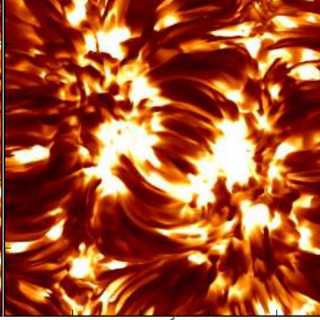Bibcode
de la Cruz Rodríguez, J.; Socas-Navarro, H.
Bibliographical reference
Astronomy and Astrophysics, Volume 527, id.L8
Advertised on:
3
2011
Journal
Citations
70
Refereed citations
59
Description
Fibrils are thin elongated features visible in the solar chromosphere in
and around magnetized regions. Because of their visual appearance, they
have been traditionally considered a tracer of the magnetic field lines.
For the first time, we challenge that notion by comparing their
orientation to that of the magnetic field, obtained via high-resolution
spectropolarimetric observations of Ca ii lines. The short answer to the
question posed in the title is that mostly yes, but not always.
Related projects

Magnetism, Polarization and Radiative Transfer in Astrophysics
Magnetic fields pervade all astrophysical plasmas and govern most of the variability in the Universe at intermediate time scales. They are present in stars across the whole Hertzsprung-Russell diagram, in galaxies, and even perhaps in the intergalactic medium. Polarized light provides the most reliable source of information at our disposal for the
Tanausú del
Pino Alemán